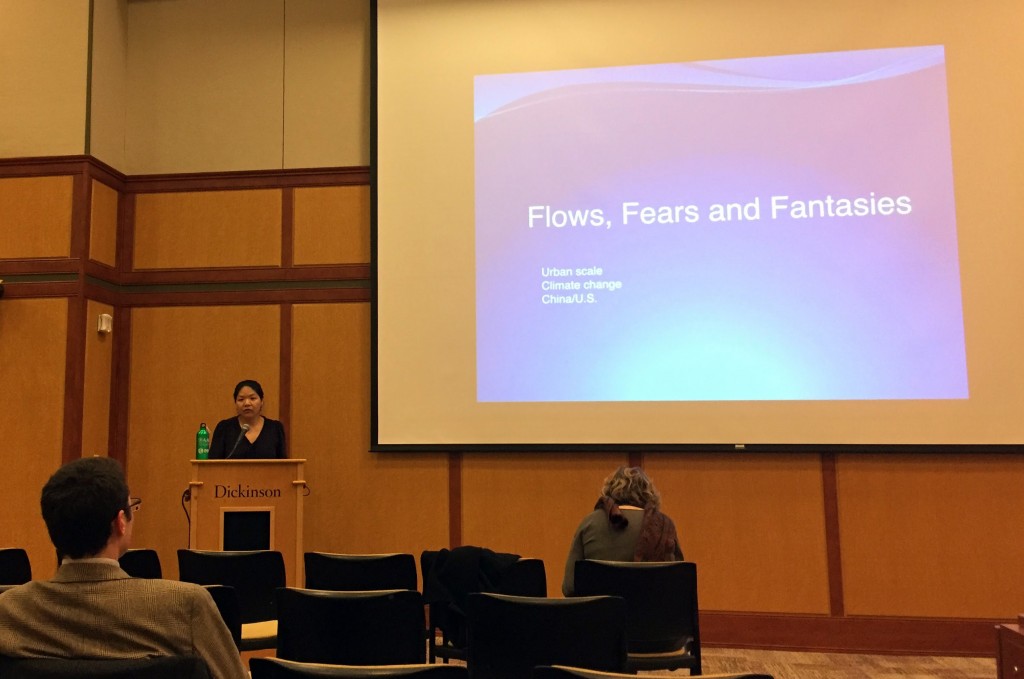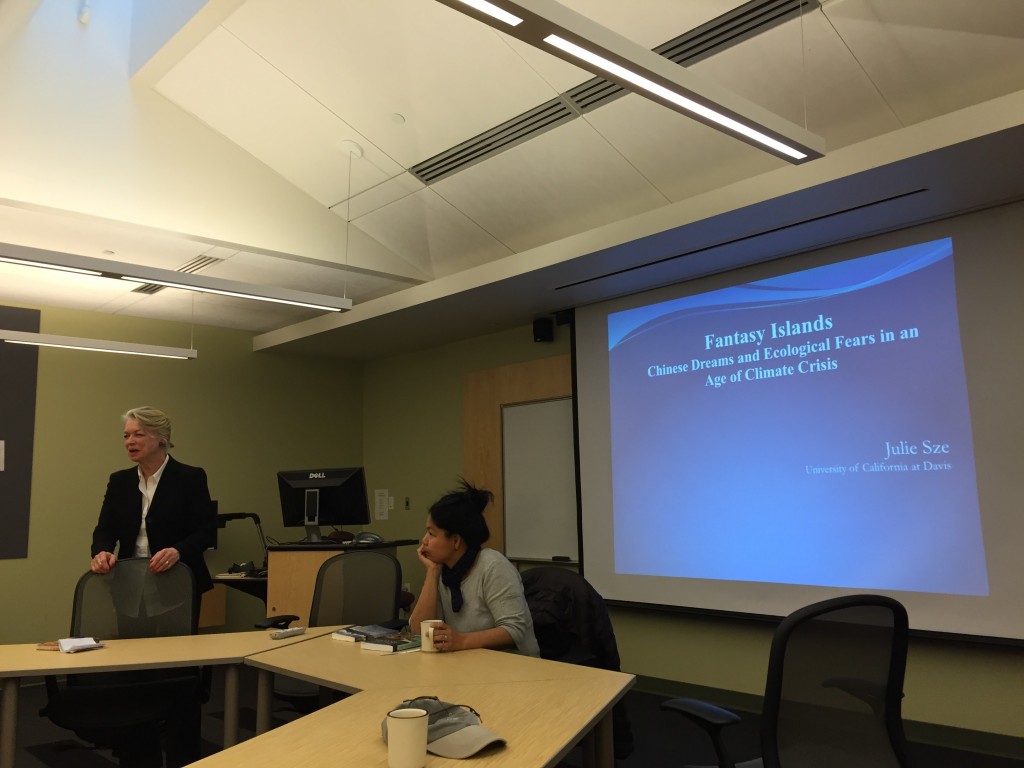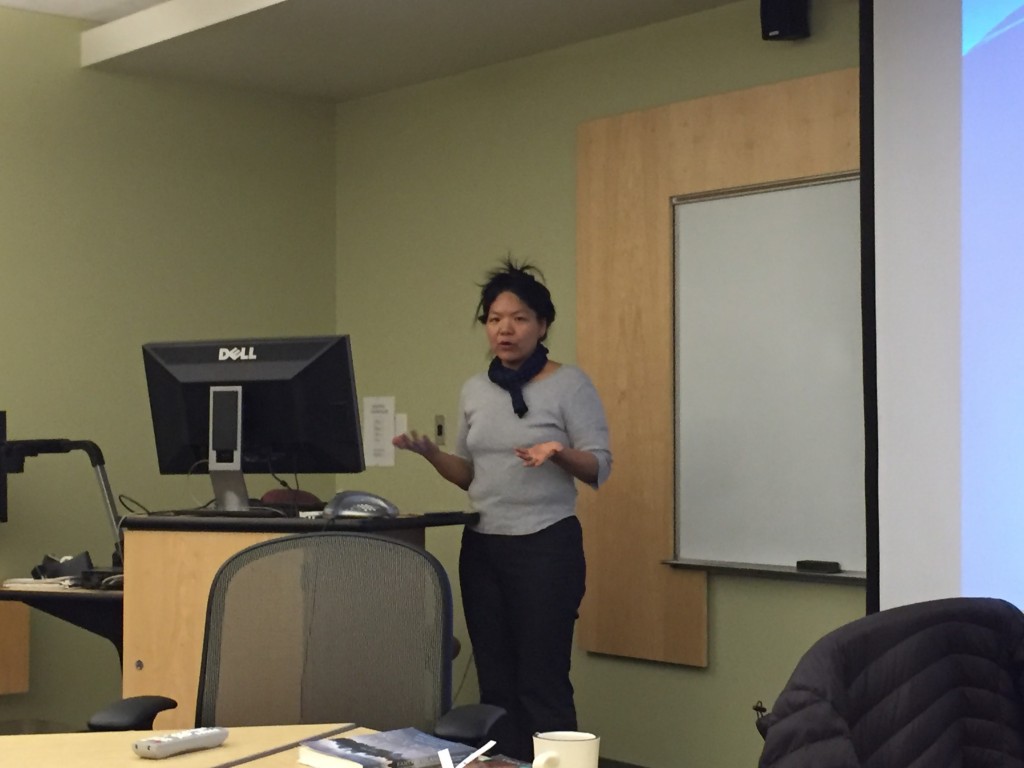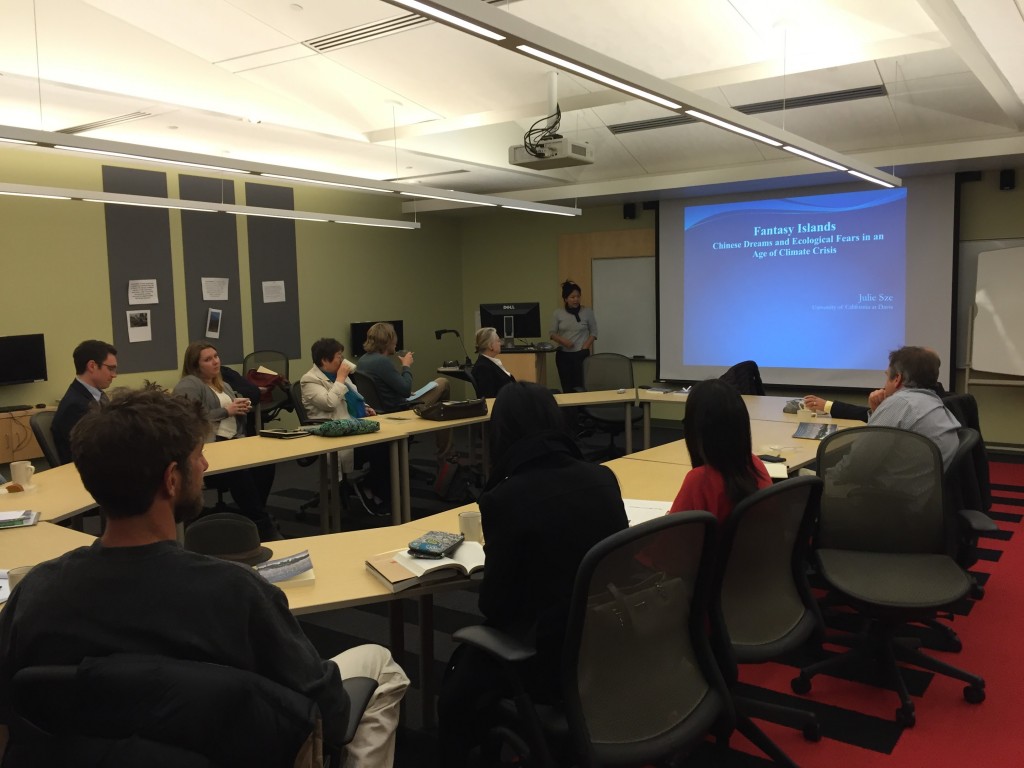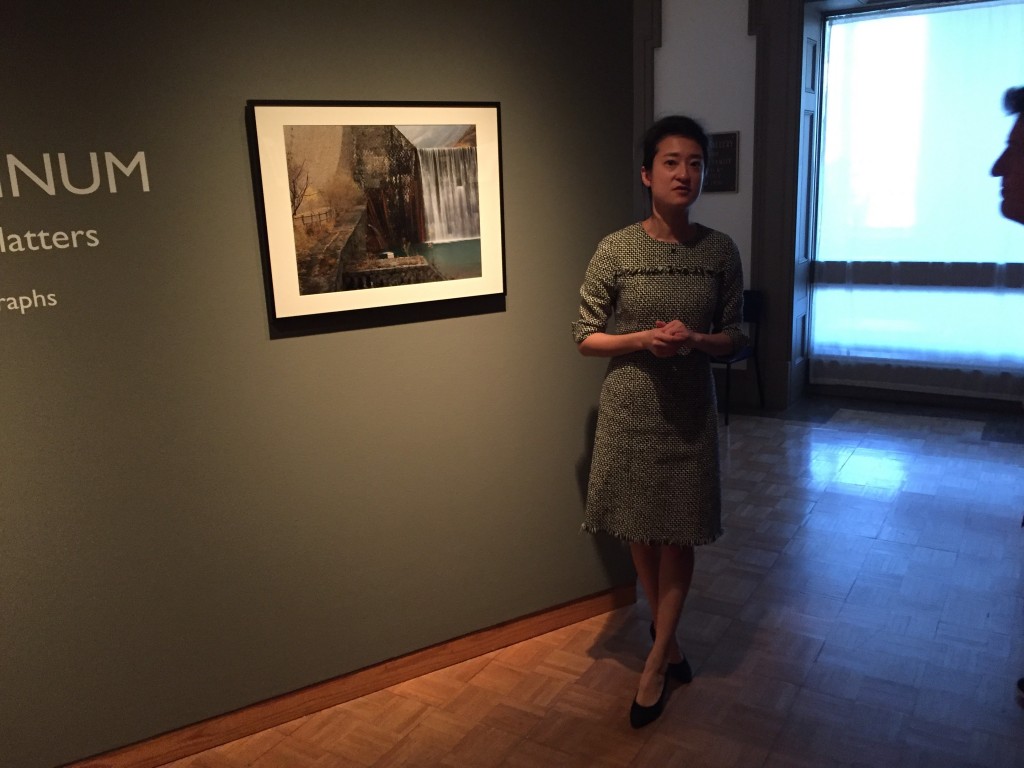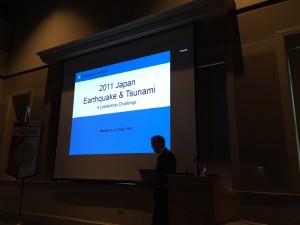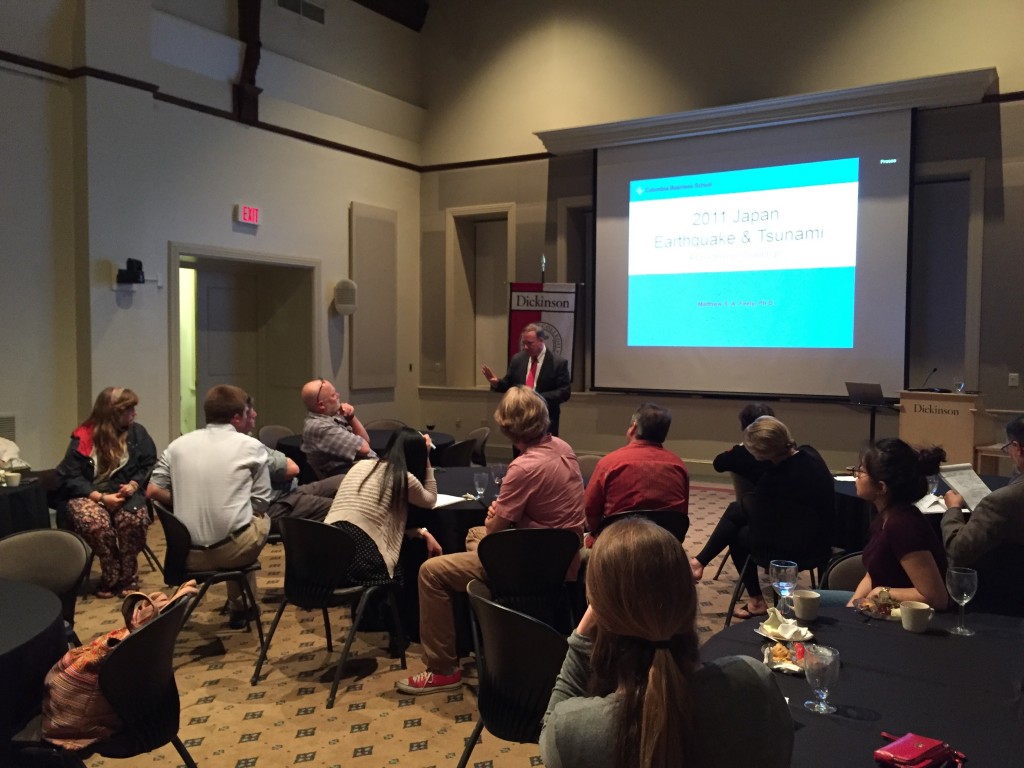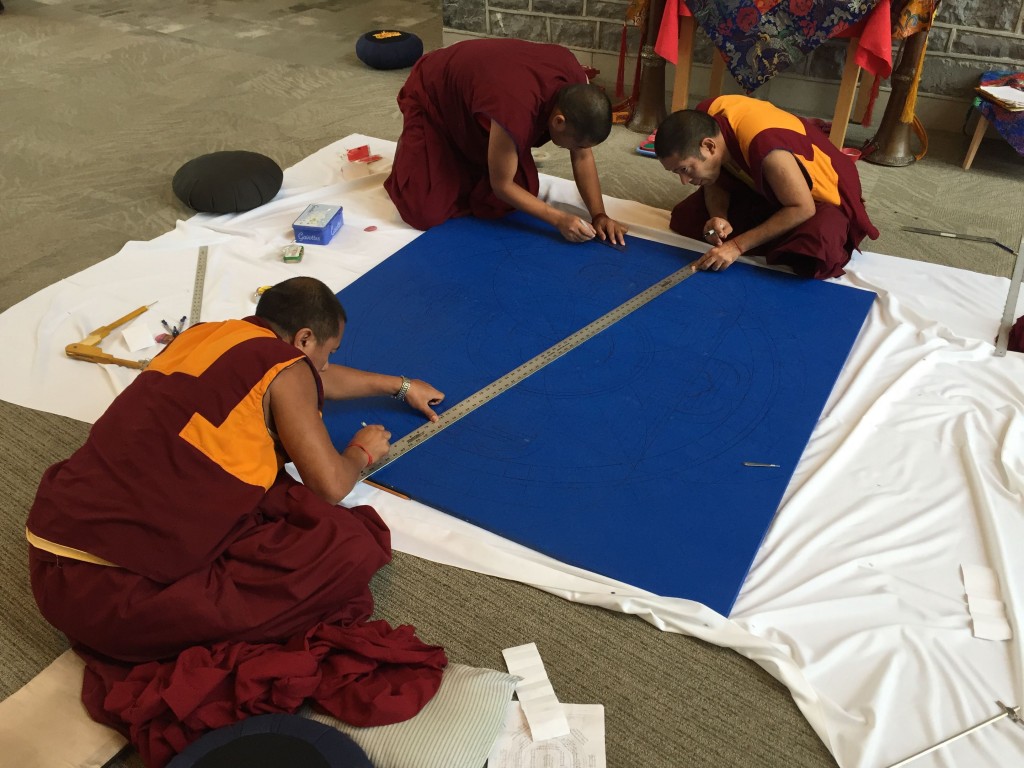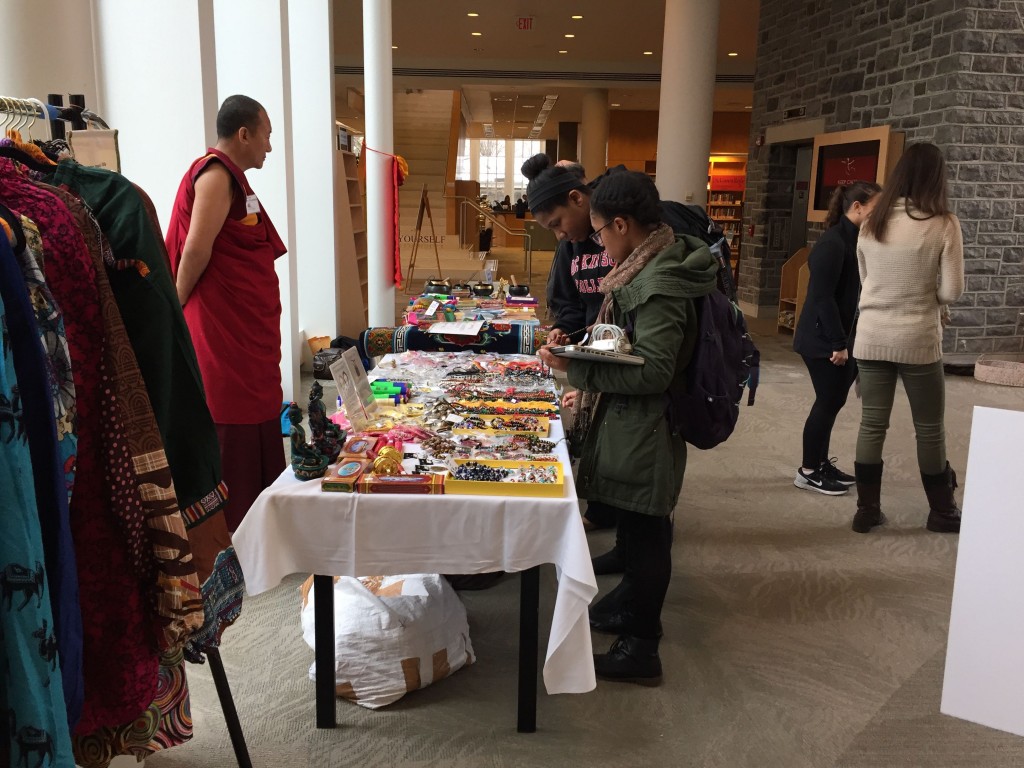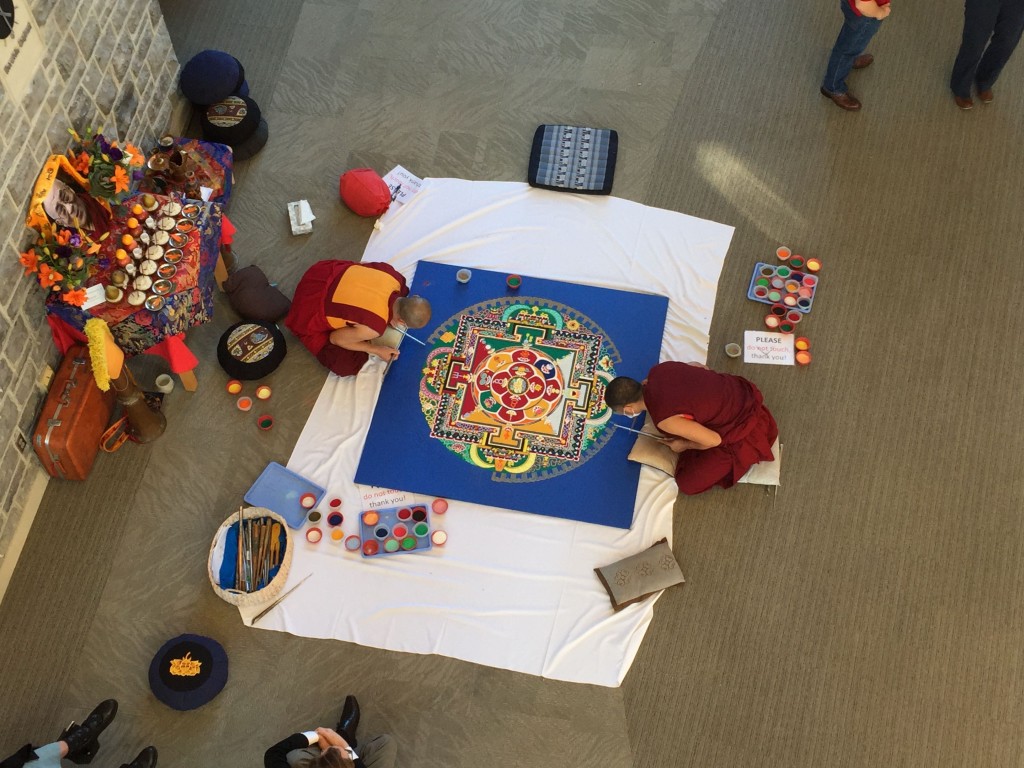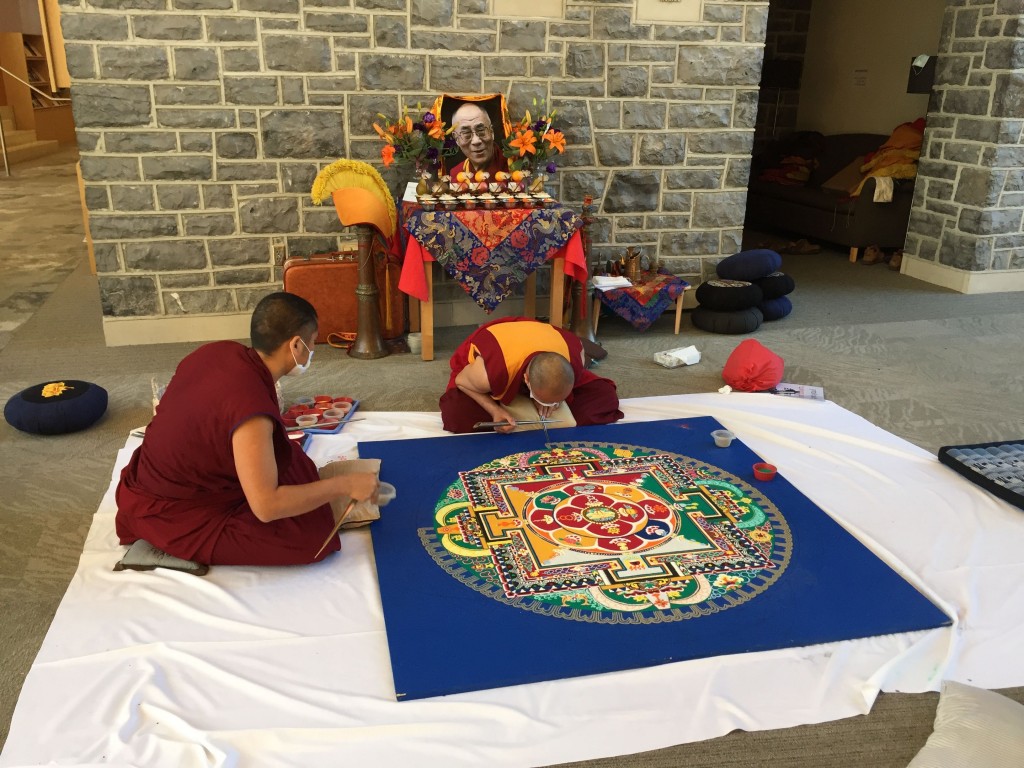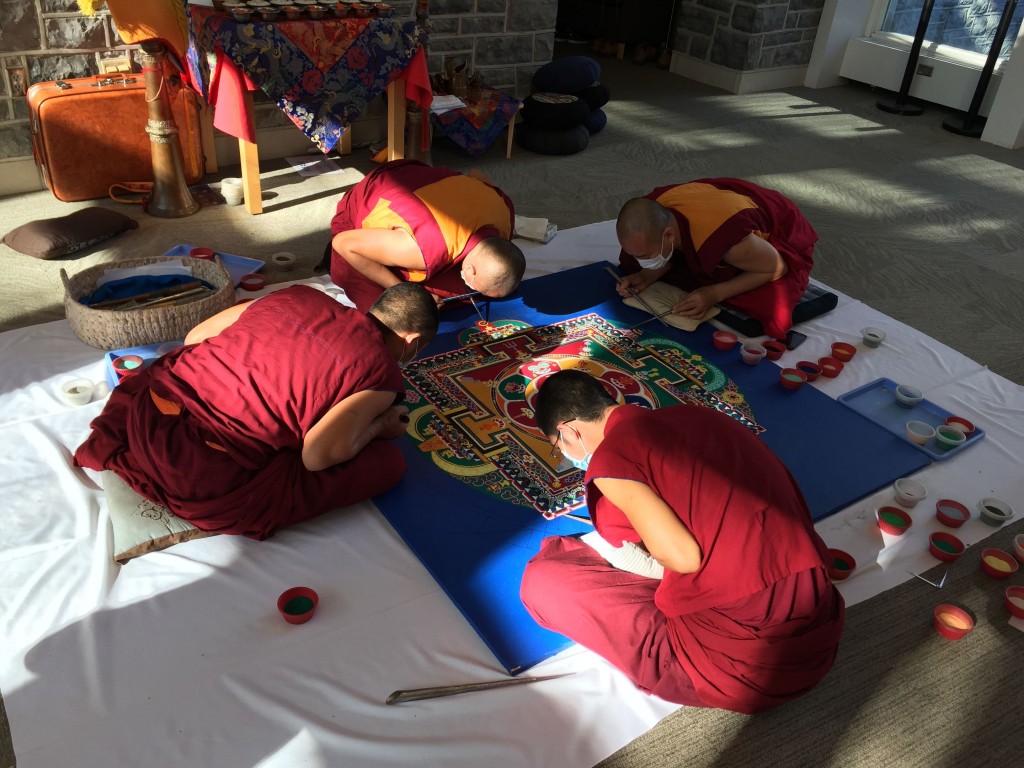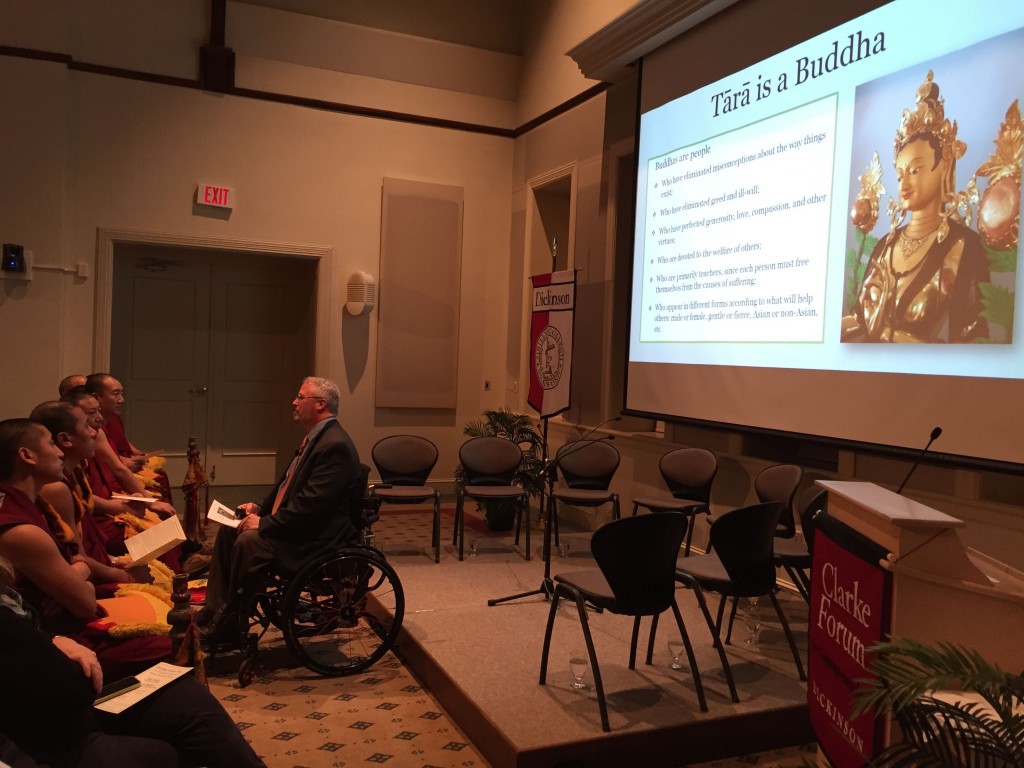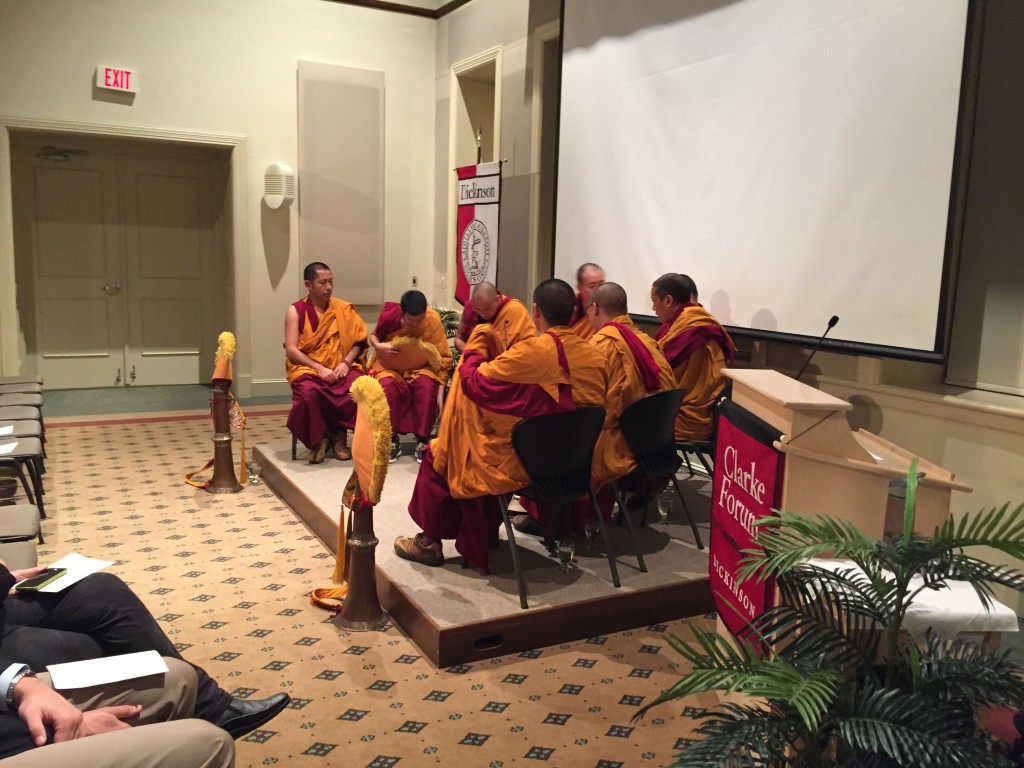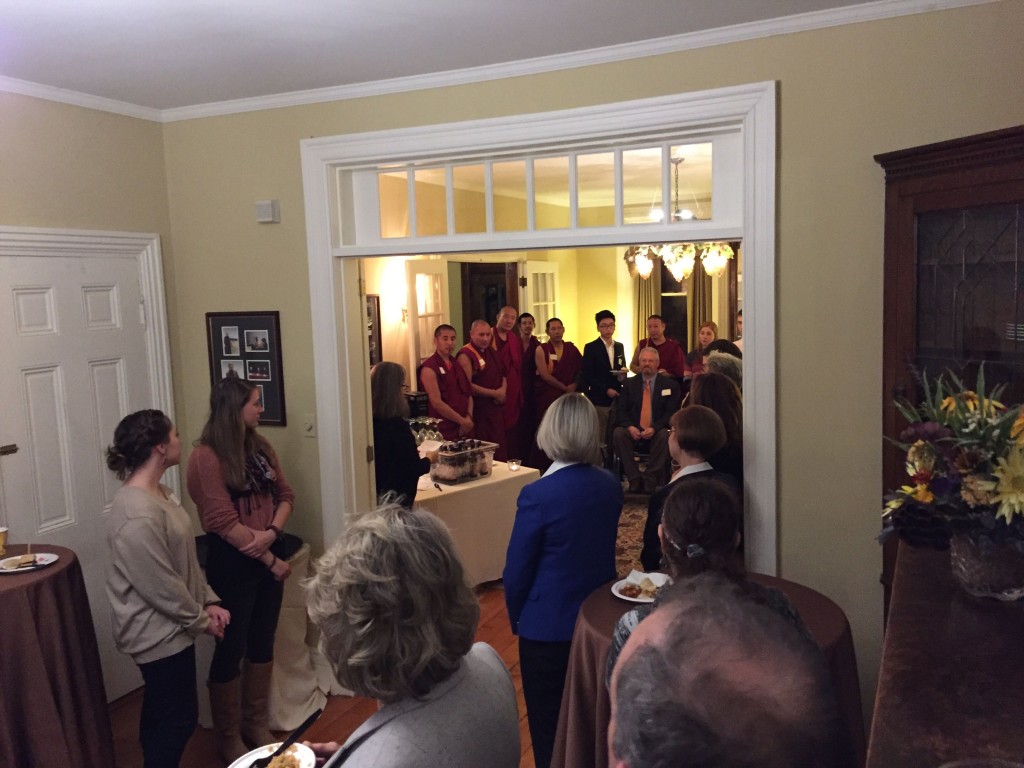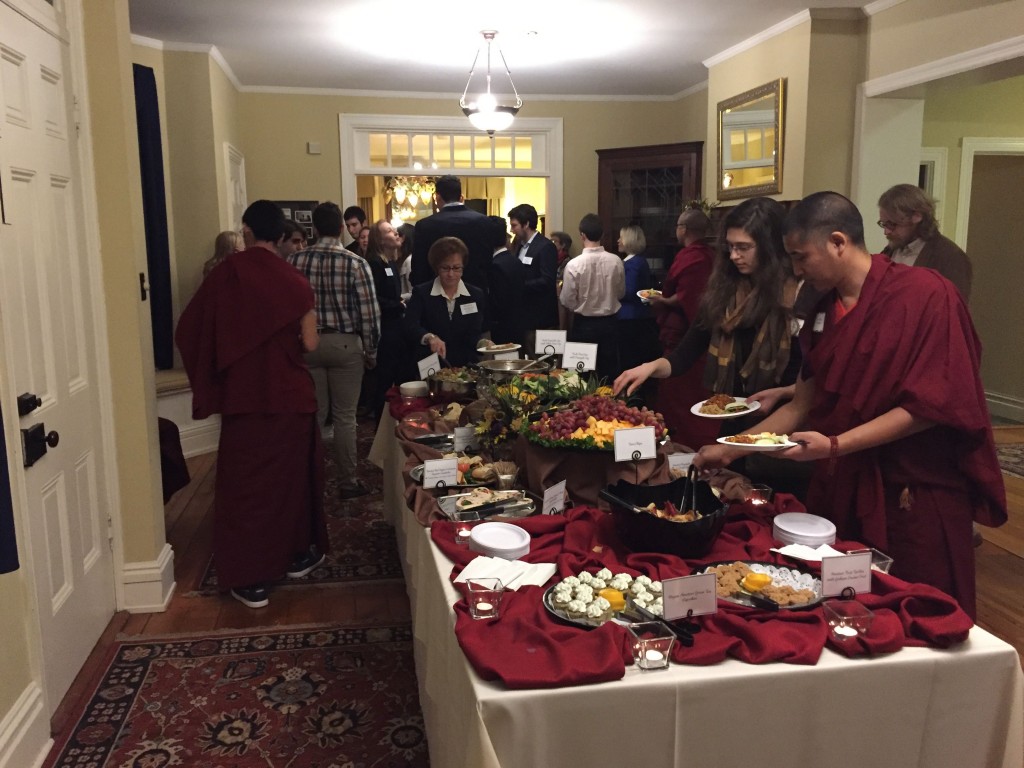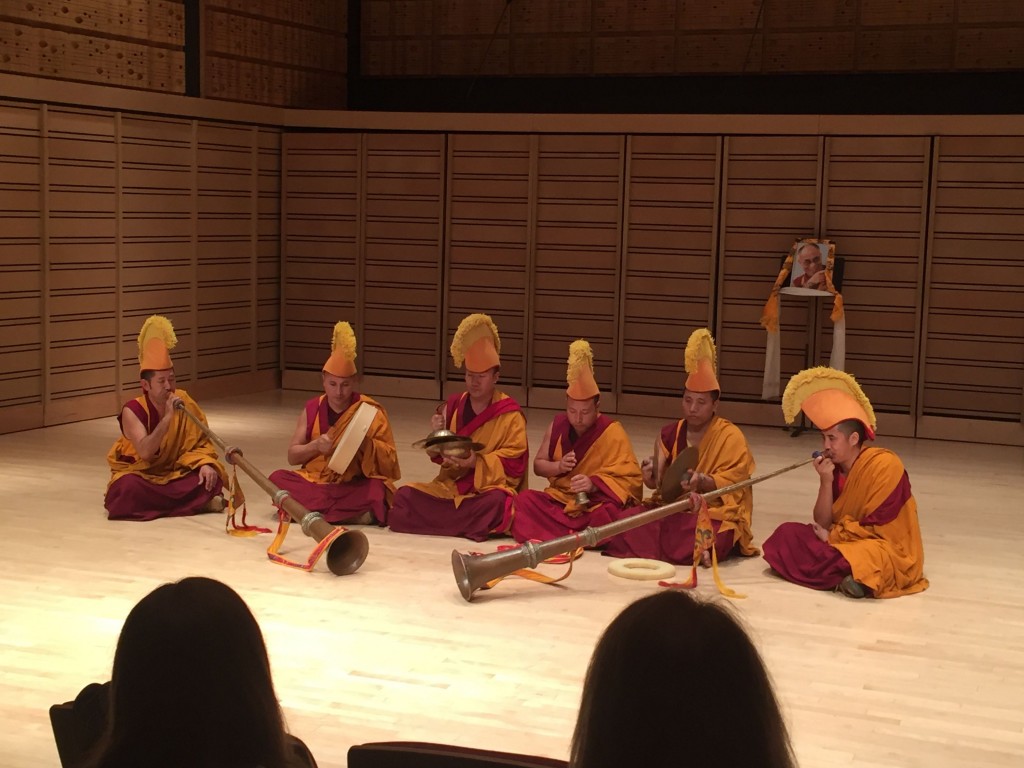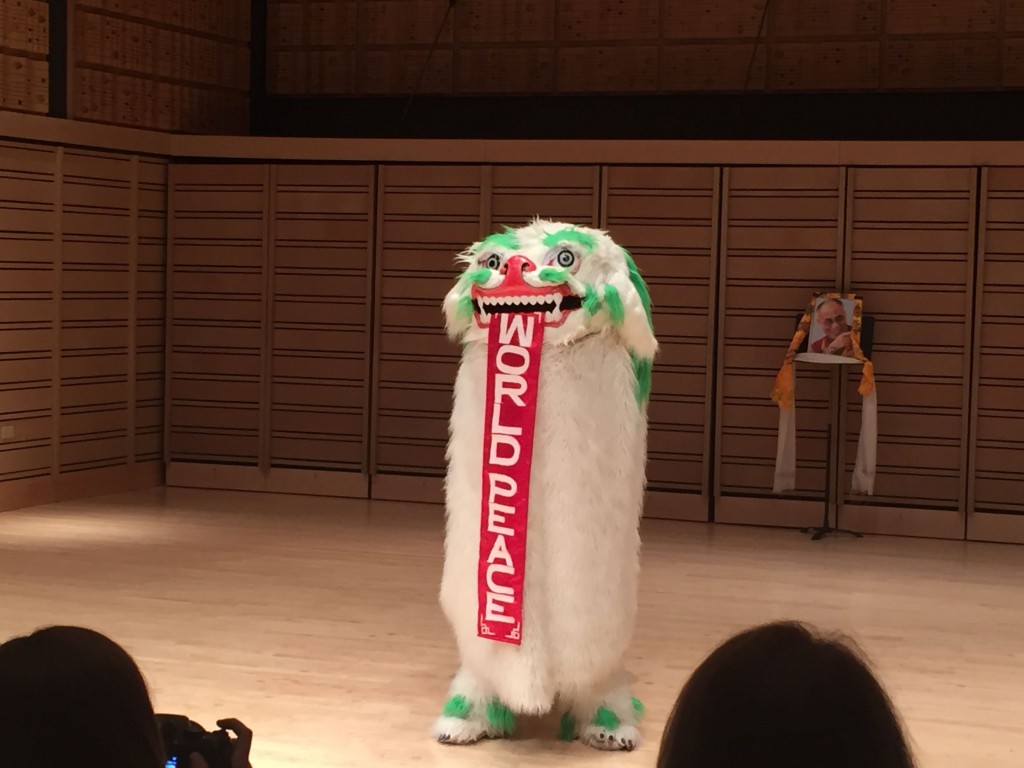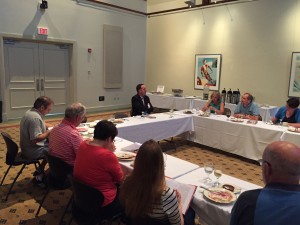2016 EVENTS
March 9, 2016: Colloquium discussion with Mathew Feely, Columbia Business School, NY: Cooperating to Manage Natural Disasters: The Joint Japan-U.S. Response to the 2011 Tsunami, Time: 5:00-7:30 pm Location: Stern Great Room
March 29, 2016: Faculty Colloquium discussion with Wei Ren, Assistant Professor of Art and Art History, who will lead a tour and discussion of the Ink, Silver, Platinum Exhibit.
Time: 5:00-7:30 pm Location: Trout Gallery
April 6, 2016: Public Lecture with Julie Sze, Professor and Director of American Studies, UC Davis. Author of Fantasy Islands: Chinese Dreams and Ecological Fears in an Age of Climate Crisis. Sze will focus on climate justice/ injustice more generally, with a China / Pacific Rim theme. Time: 7:00-8:00 pm Location: HUB Social Hall East
April 7, 2016: Faculty Colloquium discussion with Julie Sze. Fantasy Islands: Chinese Dreams and Ecological Fears in an Age of Climate Crisis.
Time: 5:00-7:30 pm Location: Kaufman Hall Greenhouse Atrium and Room 178
2015 EVENTS
November 17 – November 21, 2015: Tibetan Monk Residency: Enlightened Activity: The Green Tara Initiative: Times and Locations: TBA
September 10, 2015: Public Lecture with Gillen D’Arcy Wood: Tambora 1815: The Eruption that Changed the World Time: 7:00-8:30 pm Location: Stern Great Room
September 9, 2015: Colloquium Discussion with Gillen D’Arcy Wood Times: 5:00-7:00 pm Location: Stern Great Room
April 23, 2015: Colloquium Discussion with Professor Wang Time: 5:00-9:00 pm Location:Kaufman Hall Greenhouse Atrium and Room 178
April 22, 2015: Public lecture with Professor Wang: Science, Technology and Civilization in China’s Yellow River Basin Time: 7:30-9:00 pm Location: Kaufman Hall Greenhouse Atrium and Room 178
March 24, 2015: Colloquium Discussion: Valley & Ridge Goes to China Pedagogy Time: 5:00-7:00 pm Location: Stern Great Room
2014 EVENTS
September 19, 2014: Colloquium Discussion with Karen Thornber
Time: 3:00-5:00 pm Location: Stern Great Room
April 16, 2014: Colloquium Discussion with Li Donghong
Time: 5:30-8:30 pm Location: Kaufman Hall Greenhouse Atrium
March 19, 2014: Public Lecture with Micah Muscolino: Earth, Water, and Power: The Ecology of War in North China’s Henan Province, 1938-1950
Time: 7:00-9:00 pm Location: Denny Hall, Room 317
March 18, 2014: Colloquium Discussion with Micah Muscolino: A Militarized River: The 1938 Yellow River Flood and its Aftermath
Time: 5:30-8:30 pm Location: Allison Hall Community Room
2013 Events:
November 19, 2013: Colloquium Discussion with Ann Hill, Jeff Niemitz and Matt Steiman: Indigenous Knowledge and the Environment in Yunnan
Time: 5:30-8:30 pm Location: Stern Great Room
September 19, 2013: Public Lecture with Fa-Ti Fan: Science, Earthquakes, and Politics in Mao’s China
Time: 7:00-9:00 pm Location: Denny 317
September 18, 2013: Colloquium Discussion with Fa-Ti Fan (Guest) and Ash Nichols: Natural History in China and the West
Time: 6:30-8:30 pm Location: Koh Room (Waidner-Spahr library)
February 27, 2013: Public Lecture with Andy Moore: Societies, Risks & Natural Hazards
Time: 4:30-5:30 pm Location: Denny 317
February 26, 2013: Colloquium Discussion with Andy Moore:
Time: 5:00-7:30pm Location: Stern Great Room

